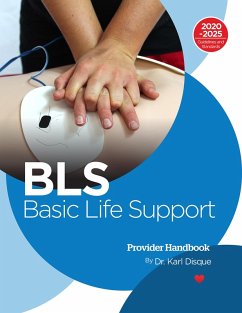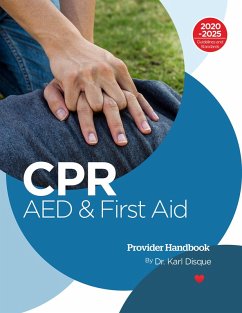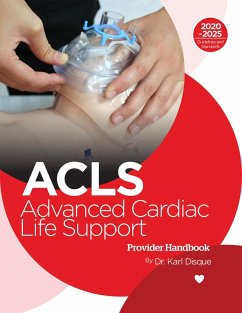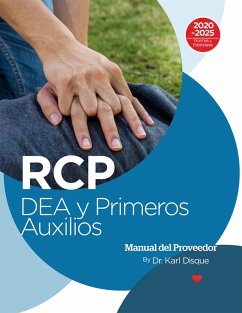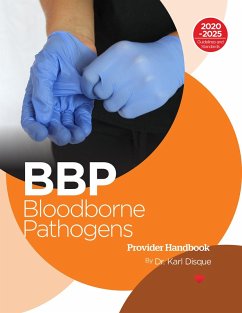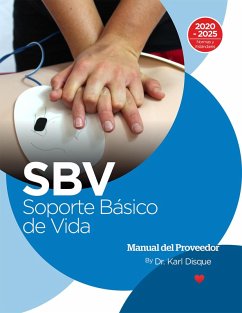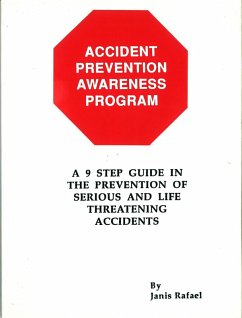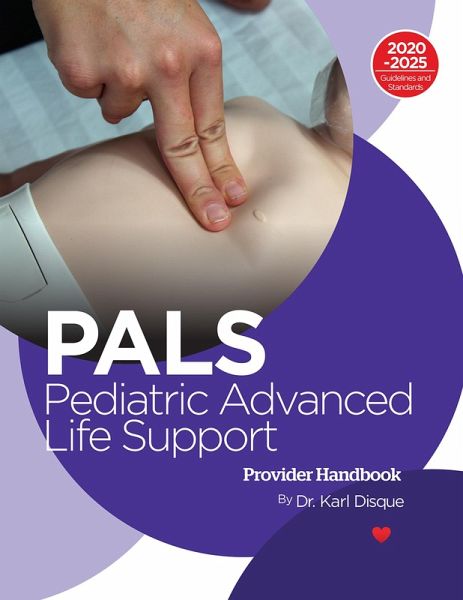
Pediatric Advanced Life Support (PALS) Provider Handbook (eBook, ePUB)

PAYBACK Punkte
0 °P sammeln!
The goal of the Pediatric Advanced Life Support (PALS) instructor manual is to improve the quality of care provided to seriously ill or injured children. This handbook uses a series of simulated pediatric emergencies to reinforce the important concepts of a systematic approach to pediatric assessment, first aid, health care, basic life support, PALS treatment algorithms, effective resuscitation, and team dynamics. Our education training material is created and maintained by practicing physicians, based on the latest International Liaison Committee on Resuscitation (ILCOR) Standards and Guideli...
The goal of the Pediatric Advanced Life Support (PALS) instructor manual is to improve the quality of care provided to seriously ill or injured children. This handbook uses a series of simulated pediatric emergencies to reinforce the important concepts of a systematic approach to pediatric assessment, first aid, health care, basic life support, PALS treatment algorithms, effective resuscitation, and team dynamics. Our education training material is created and maintained by practicing physicians, based on the latest International Liaison Committee on Resuscitation (ILCOR) Standards and Guidelines (2020-2025).
PALS health care is a series of protocols to guide responses to life-threatening clinical events. These responses are designed to be simple enough to be committed to memory and recalled under moments of stress.
PALS ESSENTIALS:
- Provider who is going to perform PALS is assumed to have maintained and developed competence with not only the materials presented in this handbook but also certain physical skills, including Basic Life Support interventions.
- PALS is often performed on children and infants; PALS providers should be proficient in BLS for these age groups.
- PALS algorithms are based on the current understanding of best practices to deliver positive results in life-threatening cases and are intended to achieve the best possible outcome for the child or the infant during an emergency.
Approximately every five years, the ILCOR updates the guidelines for PALS. The content contained herein is based on the most recent ILCOR publications on PALS and will periodically compare previous and revised recommendations for a comprehensive review.
Included with this purchase is a unique code that allows you to complete the PALS course on the NHCPS website.
PALS health care is a series of protocols to guide responses to life-threatening clinical events. These responses are designed to be simple enough to be committed to memory and recalled under moments of stress.
PALS ESSENTIALS:
- Provider who is going to perform PALS is assumed to have maintained and developed competence with not only the materials presented in this handbook but also certain physical skills, including Basic Life Support interventions.
- PALS is often performed on children and infants; PALS providers should be proficient in BLS for these age groups.
- PALS algorithms are based on the current understanding of best practices to deliver positive results in life-threatening cases and are intended to achieve the best possible outcome for the child or the infant during an emergency.
Approximately every five years, the ILCOR updates the guidelines for PALS. The content contained herein is based on the most recent ILCOR publications on PALS and will periodically compare previous and revised recommendations for a comprehensive review.
Included with this purchase is a unique code that allows you to complete the PALS course on the NHCPS website.
Dieser Download kann aus rechtlichen Gründen nur mit Rechnungsadresse in A, B, CY, CZ, D, DK, EW, E, FIN, F, GR, H, IRL, I, LT, L, LR, M, NL, PL, P, R, S, SLO, SK ausgeliefert werden.




